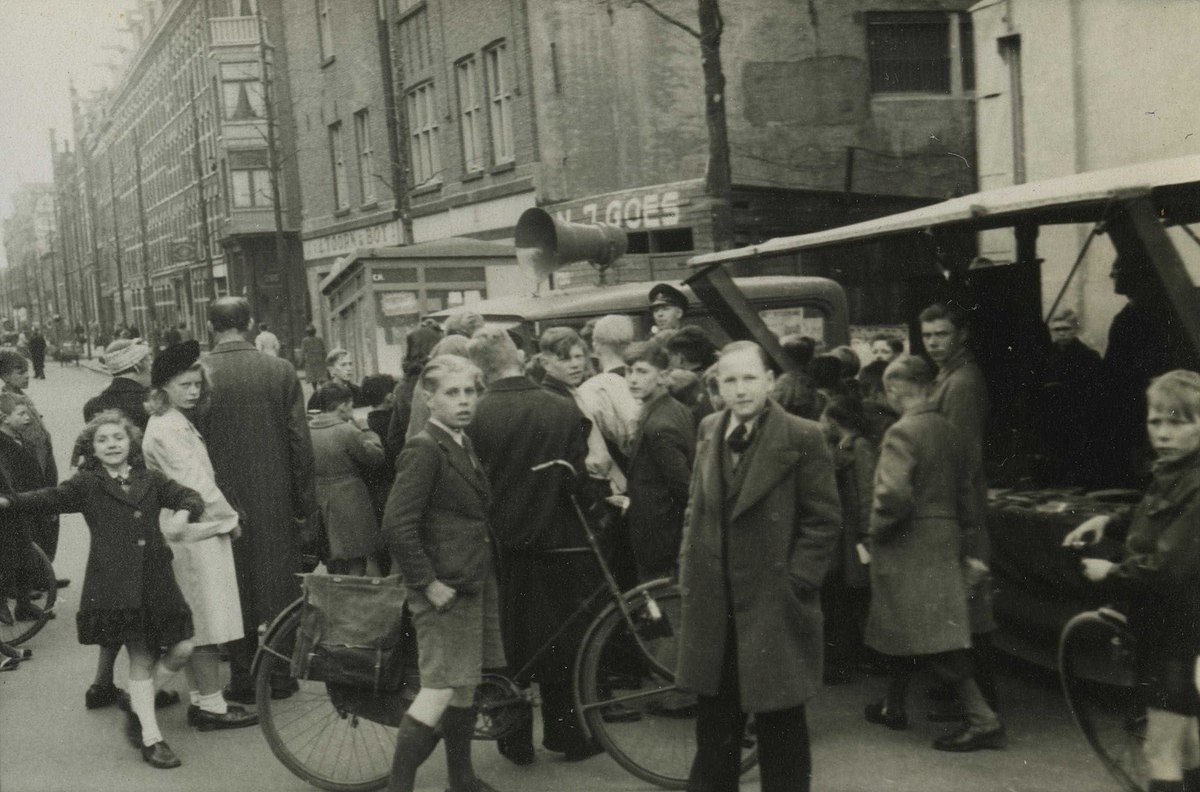
Netherlands in World War II
NetherlandsDespite Dutch neutrality, Nazi Germany invaded the Netherlands on 10 May 1940 as part of Fall Gelb (Case Yellow). On 15 May 1940, one day after the bombing of Rotterdam, the Dutch forces surrendered. The Dutch government and the royal family relocated to London. Princess Juliana and her children sought refuge in Ottawa, Canada until after World War II.
The invaders placed the Netherlands under German occupation, which lasted in some areas until the German surrender in May 1945. Active resistance, at first carried out by a minority, grew in the course of the occupation. The occupiers deported the majority of the country's Jews to Nazi concentration camps.
World War II occurred in four distinct phases in the Netherlands:
- September 1939 to May 1940: After the war broke out, the Netherlands declared neutrality. The country was subsequently invaded and occupied.
- May 1940 to June 1941: An economic boom caused by orders from Germany, combined with the "velvet glove" approach from Arthur Seyss-Inquart, resulted in a comparatively mild occupation.
- June 1941 to June 1944: As the war intensified, Germany demanded higher contributions from occupied territories, resulting in a decline of living-standards. Repression against the Jewish population intensified and thousands were deported to extermination camps. The "velvet glove" approach ended.
- June 1944 to May 1945: Conditions deteriorated further, leading to starvation and lack of fuel. The German occupation authorities gradually lost control over the situation. Fanatical Nazis wanted to make a last stand and commit acts of destruction. Others tried to mitigate the situation.
The Allies liberated most of the south of the Netherlands in the second half of 1944. The rest of the country, especially the west and north, remained under German occupation and suffered from a famine at the end of 1944, known as the "Hunger Winter". On 5 May 1945, total surrender of all German forces led to the final liberation of the whole country.
